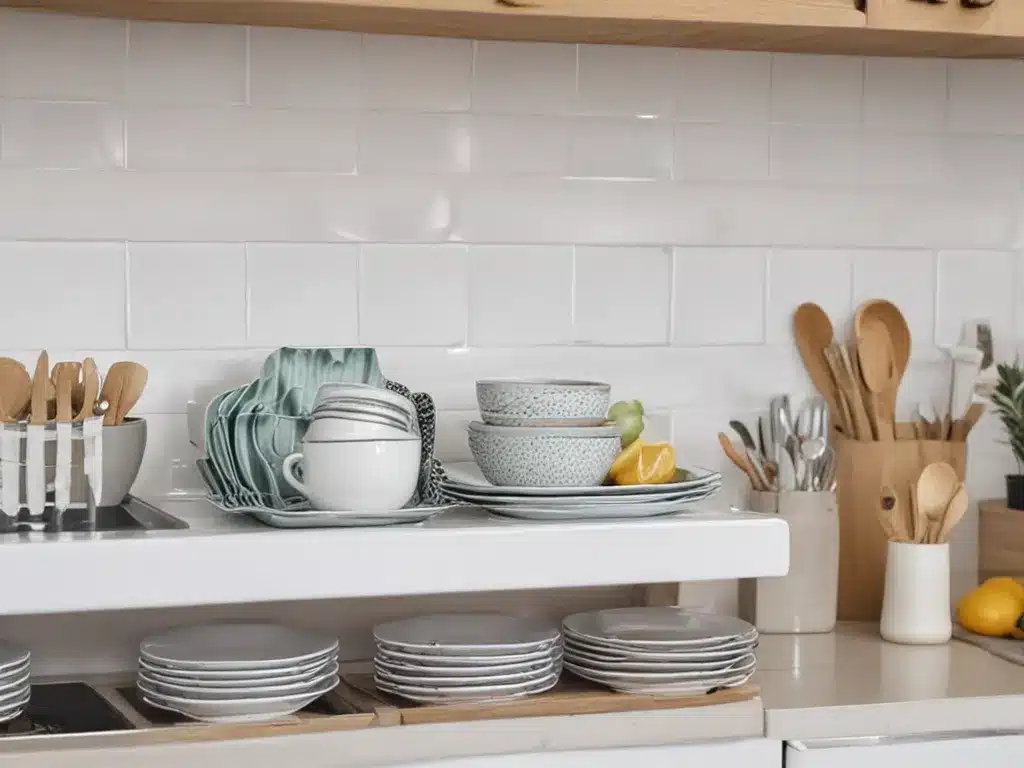Getting sparkling clean dishes after every meal can seem like an impossible task. With food residue and grease clinging to plates, utensils and cookware, it’s easy to feel frustrated when facing a sink full of dirty dishes. However, with some helpful tips and tricks, you can get your dishes gleaming every time.
Use Hot Water For Washing
Hot water is your best friend when it comes to cutting through grease and dissolving food particles. Make sure your sink is filled with very hot, but not scalding water before washing dishes. The hotter the water, the better it will be at breaking down oil and grease on cookware and plates.
Don’t Let Dishes Soak Too Long
It’s tempting to just let dishes pile up in the sink until you have time for a full wash. However, letting dishes sit for too long allows food particles to really stick and harden onto plates and cookware. Try to wash dishes shortly after using them, and avoid letting them soak for more than an hour or two maximum. The quicker you can get to washing, the easier it will be to get them looking shiny and new.
Use A Quality Dish Soap
Choosing an effective dish soap is key for getting your dishes sparkling clean. Look for dish soaps that contain grease-cutting ingredients like lemon, pumice, or grease dissolving enzymes. I’ve found Dawn Ultra Dishwashing Liquid to be very effective at cutting through tough, baked on grease. Don’t be afraid to really squirt the soap directly onto stuck on food residues. Letting it sit for a few minutes helps break things down.
Scrub With A Dish Brush
As satisfying as it is to just let soapy water run over your dishes, some extra scrubbing is needed for stuck on food. Using a dish brush helps loosen food particles and dissolve grease while you are washing. Focus on scrubbing especially dirty areas like cooked on food on pots and pans. Don’t forget to regularly replace your dish brush once it starts looking worn.
Soak Tough Cookware
Sometimes even a hot soapy wash isn’t enough for cooked on and baked on food. For really stubborn baked on food, let cookware and bakeware soak for 30 minutes to an hour in hot soapy water before washing. This extra soaking time lets the soap’s grease cutting ingredients penetrate and soften the food residue.
Hand Wash Delicate Items
Items like wine glasses, decorative glasses and fine china should always be hand washed instead of tossed in the dishwasher. The hot water and turbulence of a dishwasher can damage delicate items. For these, just use a soft sponge or cloth with hot soapy water. Take care not to apply too much pressure when scrubbing.
Rinse Thoroughly
Once washing is complete, rinse everything thoroughly with hot water. Make sure to rinse every surface, and flip items over to rinse the undersides as well. Any leftover soap residue can lead to spots and cloudiness once dishes dry. Rinsing with very hot water ensures you wash away all traces of soap.
Let Air Dry
Skip the dish towel for drying, as it can just redeposit grease and dirt back onto your freshly washed dishes. Let everything air dry in a dish rack completely before putting dishes away. The evaporation process helps wick away any last bits of moisture.
With a few adjustments to your dish washing process, you can have sparkling clean dishes that look like new every time. Don’t be intimidated by greasy pans or baked on casserole dishes. With hot water, the right soap, some thorough scrubbing and complete air drying, you’ll be amazed at the dish washing results you can achieve.







